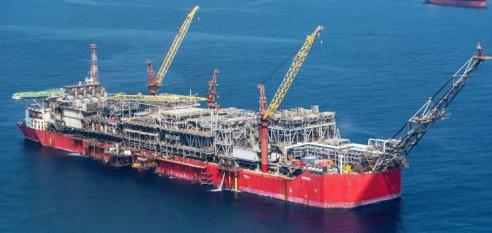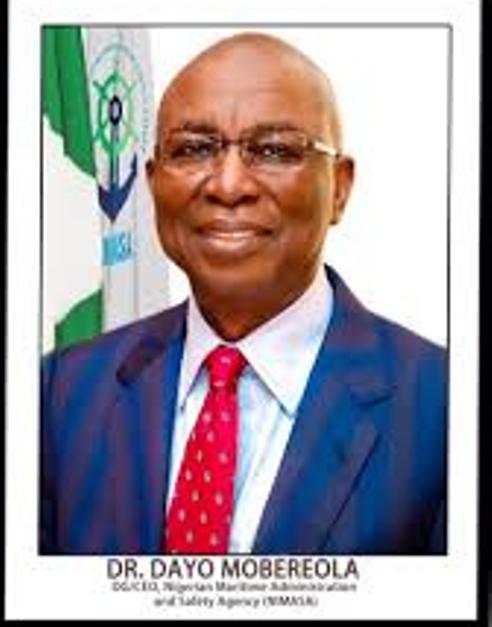
LAGOS APRIL 16TH (NEWSRANGERS)-Airlines operators have cried out following the rise in the price of Jet A1, otherwise known locally as aviation fuel, to an all-time high of N260 per litre from N180 per litre.
The skyrocketing price of the product has provoked panic in the sector with many predicting that more airlines may be forced to close shop if the situation was not brought under control.
On the average, Nigerian carriers are said to spend about 40 percent of their expenditure on fuel before this increase, whereas their counterparts globally spend about 29 percent.
Med-View Airline disclosed over the weekend that it had expended at least N22 billion in the purchase of the product in the past five years to fuel its aircraft.
It called on the Federal Government to intervene in the situation before it degenerated.
Our source revealed that aviation fuel now sells for N220 per litre in Lagos – depending on the volume an airline is buying and the marketer involved.
It goes for N250 and N260 in Kano, Kaduna, Maiduguri and other states, even in the South-South and South East.
Less than a year ago, the product was sold for N180 per litre in Lagos and outside the state.
Between January and February 2016, a litre of Jet A1 costs N120 in Lagos, implying that the cost has risen by over 90 percent in the state while it increased by 110 percent outside Lagos.
Investigations further revealed that no quantity of the product is refined again in the country as major oil marketers import it into the country after crude had been lifted out.
The Nigerian National Petroleum Corporation (NNPC) didn’t respond to DAILY INDEPENDENT’s inquiry on when the nation’s refineries would commence production of Jet AI in the country.
Ndu Ughamadu, Spokesman of NNPC, promised to get back to our correspondent but he was yet to do so as at the time of filing this report.
Investigations indicated that in oil-rich Saudi Arabia, local carriers pay 20 cents per litre while foreign airlines pay 41 cents for the product.
A staff of a major oil marketer also confirmed the price jump to DAILY INDEPENDENT.
He blamed the development on the scarcity of foreign exchange from the Central Bank of Nigeria (CBN), adding that the marketers source dollars from black market in order to purchase the product.
The source said: “No one can blame the major oil marketers for the recent increase in the price of Jet A1.
“We all buy dollars from the black market, though the Federal Government, through the banks, sell dollars to investors at a relatively cheaper rate.
“But the unfortunate thing is that when you approach them, they collect your money and close up.
“The money may not be available to you even in the next three months.
“The industry we are in does not wait for anyone. We can’t wait for three months to do business.
“So, we have to approach the black market for dollars, which is at a very high rate when compared to what government sells.
“You can see that subsidy has been re-introduced on premium motor spirit (PMS). It is because of the continuous free fall of the naira.”
Also, Med-View Airline said, over the weekend, that it had spent at least N22 billion on the purchase of aviation fuel in the past five years of its scheduled operations.
Alhaji Muneer Bankole, Chief Executive Officer (CEO), Med-View Airline, decried the huge amount of money spent on fuel consumption.
Bankole also confirmed that the price of the product had risen steeply in recent time.
He spoke with journalists at the airline’s office in Lagos on Sunday.
According to Bankole, 30 percent of its fuel purchase was done through Forte Oil, but despite the high price, none of the airlines had increased air tickets in recent time.
He, however, lamented that the current environment was not conducive to business growth and wanted the government to intervene.
He explained that the Airline Operators of Nigeria (AON), the umbrella body of airlines in the country, was studying the situation and may make a pronouncement on it soon.
“We had an AON meeting recently, one of the subjects we discussed was looking at the fuel issue in Nigeria.
“We cannot continue in this way. We are at the mercy of the marketers and sometimes, they claim they don’t get the forex, but the CBN said they have been giving allocations.
“In importing this product, three things are involved; the man gets his licence to import the fuel either by ship or any other means.
“This is one owner. Another owner who receives the fuel to keep for the man too has his own value.
“And then, it gets to the fuel browsers who store the product within the airport environment and, today, because of the security situation, they don’t go to Maiduguri.
“So, the few ones that get the product there sell at N250 and N260 per litre.
“Some go as high as N270. Who is responsible for all these? It is the government and they should address the situation.
“Our fuel consumption in the past five years is about N22 billion”, he said.
Olasimbo Betiku, Chief Operating Officer of CITA Petroleum Nigeria Limited, had said last week that marketers too were facing a huge challenge in importing the product to Nigeria.
He disclosed that Nigeria had zero local refining capacity for the product, saying it was the number one cost-impacting factor.
He also pointed out that importation transactions for jet fuel were dollar-denominated, emphasising that scarcity of dollars also impacted the local cost negatively.
He added: “In addition, our global national infrastructural template, covering roads, ports, and pipelines, among others, is challenged.
“Our ports were built when our population was around 55 percent of the present figure. So are roads and no pipelines to move the product.
“All the above extra financial commitments on logistics directly impact the cost of the product here.
“In addition, our industry is dollar-denominated. If our local currency is weak to a dollar, we pay more than other countries with healthier currency to a dollar.
“This is a factor that will make consumers pay relatively more.”
The cost of jet A1 is impacting negatively on airfares and on the operating expenses of aviation companies in Nigeria.
The burden of fuelling eats up 35 to 40 percent of an aviation company’s cost of operation, according to analysts.
The chief executive of an airline company said it took between N800,000 and N1 million to fuel a Boeing 737 for two trips.
Govts’ Failed Promise
Nigeria is currently importing its aviation fuel due to the lack of capacity of local refineries to produce the product.
Dr. Ibe Kachikwu, the Minister of State for Petroleum Resources, stated this recently.
He had, however, promised in 2016 that the nation’s refineries would soon start producing the product in the country, a statement that is yet to be fulfilled by the government two years later.
Kachikwu said that the supply and distribution of Jet A1 was out of government control because it has since been deregulated.
But he added that a meeting of importers of aviation fuel would soon be convened to address all challenges impeding the seamless supply of the product.
He maintained that the corporation would look into the import and sale of aviation fuel to understand and tackle the problem.
He had said: “The immediate action point, for now, is to meet with all the importers of aviation fuel; we want to understand the consumption pattern and also look at their cost to ensure that they are not profiteering excessively.”
Daily Independent










